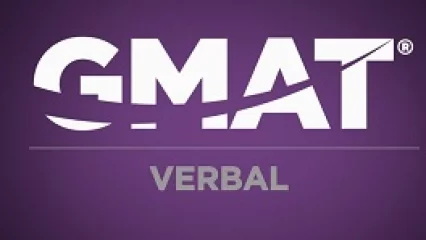But consistently answering the hard GMAT Verbal Questions correctly is a tough skill that requires plenty of smart practice. Below you can see the easy approach for hard GMAT Verbal questions.
Sentence Correction
There are several grammatical errors that tend to show up a lot in harder SC questions. Idioms, parallelism, and logical predication tend to be at the top. Study these areas diligently (GMAT flashcards for idioms will make things easier). Also, keep in mind that every GMAT Sentence Correction question will be testing multiple grammatical ideas. Therefore, knowing that there will be more than one grammatical mistake will allow you to focus on multiple parts of an answer choice, before spotting the part that is incorrect. This skill is important on the harder questions because it is not always immediately apparent which grammatical errors are being tested.
Another good strategy for improving on difficult Sentence Correction questions is to review the questions that you missed. Don’t just learn the grammatical errors. Rather, think of ways that you could have homed in on the correct answer more quickly. Did you miss the fact that one of the answers was awkwardly phrased? Did you eliminate an answer because it “sounded weird”? In other words, make sure to make a full “autopsy” as to what went wrong with each tough question, so you can avoid similar mistakes.
Critical Reasoning
Tough Critical Reasoning questions often contain some abstract, esoteric topic. Additionally, the paragraphs will be quite long. The key is to simplify the main parts, because even the most difficult CR question is no different from the easiest one: there are premises that support a conclusion, and a variety of unstated assumptions. So make sure to apply the same strategy you used with easier CR questions—just be a little more patient when you first start practicing these tough questions.
Next, be aware of the wrong answer choices. Sometimes, the toughest CR questions aren’t the ones that are the most abstract or esoteric. One of the answer choices is so tempting that it fools many people. So start getting a sense of what makes these tempting answers wrong, and use that knowledge to spot such tempting answers test-day.
Reading Comprehension
For the GMAT Reading Comprehension, a lot of your success depends on both how you approach the passage and how much you can maintain focus during the 3-hour plus GMAT (remember, the verbal section comes at the very end). As for approaching the passage, you don’t want to get bogged down in verbiage and lose a sense of the important ideas in the passage. Nor, do you want to skim, missing much of what the passage is saying. Tough passages tend to bully you with a glut of details (in the case of science) or abstract ideas (in the case of humanities-based passages).
The key in both instances is to get a general sense of what each paragraph is trying to say.
You should be able to make an intelligent paraphrase of the main idea of each paragraph (but don’t take detailed notes—that will slow you down). Answering questions correctly will require that you go back to the relevant part of the passage. Be patient. The answer—even with some of the more difficult questions—should emerge as long as you take your time. Rushing back to the answer choices without having a strong sense of the answer can often result in you choosing the wrong and/or going back and forth between two answer choices.
Finally, learn the question types that are likely to show up on hard GMAT questions. Inference questions are most common at the highest level. Practice this question type by doing and redoing inference questions in the Official Guide until you are so confident as to what the right answer is that you could convincingly teach the problem to somebody just starting to prep for the GMAT.
This post was written by Chris Lele, resident GMAT expert at Magoosh, a leader in GMAT prep.



